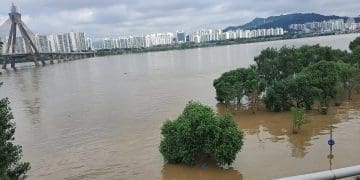Hong Kong has disqualified four pro-democracy legislators. It comes after Beijing passed a resolution that would allow the local government to remove politicians from their positions if they’re deemed a threat to national security.
The disqualification came after meetings of China’s National People’s Congress Standing Committee on 10 and 11 November.
China’s official Xinhua news agency said the committee passed a resolution to disqualify those who:
- Support Hong Kong’s independence.
- Refuse to acknowledge China’s sovereignty over the city.
- Commit acts that threaten national security.
- Ask external forces to interfere in the city’s affairs.

“This is clearly in breach of basic law”
The four politicians are Alvin Yeung, Dennis Kwok, Kwok Ka-ki and Kenneth Leung. They confirmed that they were disqualified in a news conference. Dennis Kwok said:
In terms of legality and constitutionality, obviously from our point of view this is clearly in breach of basic law and our rights to participate in public affairs, and a failure to observe due process
On Monday 9 November, 19 politicians from the pro-democracy camp said they would resign en masse if Beijing moved to disqualify any pro-democracy legislators.
A mass resignation by the pro-democracy camp would leave Hong Kong’s legislature with only pro-Beijing politicians. The pro-Beijing camp already makes up a majority of the city’s legislature. So a mass resignation would allow the passing of bills favoured by Beijing without opposition.

Postponed election
Earlier in 2020, the four now-disqualified pro-democracy politicians were barred from running for legislative elections. The elections were originally meant to happen in September before the government stated it would postpone them by a year. This was due to the coronavirus (Covid-19) situation. The four men later remained in their posts following the postponement.
The pro-democracy camp criticised the postponement as an attempt to block them from taking a majority of seats in the legislature. It came after they had held an unofficial pro-democracy primary to decide which candidates to field. 600,000 voters had participated in that process.
Hong Kong leader Carrie Lam was expected to hold a news conference to address the disqualifications.









